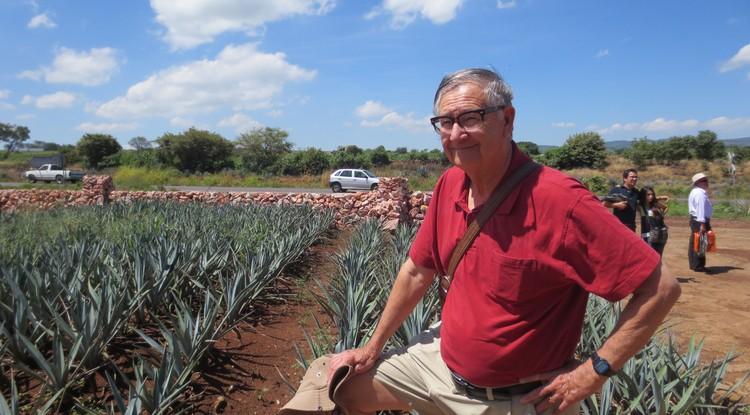Oscar Martínez, a regents professor of history at the University of Arizona, will be spending part of his last semester at the university presenting his new book, Ciudad Juárez: Saga of a Legendary Border City, at this year’s 10th annual Tucson Festival of Books.
Martínez, who will be retiring this semester, has worked at the UA for 30 years.
“Those years have been a great experience, at a great university, with great students, and in a wonderful city,” Martínez said.
Martínez plans to return to El Paso and his family roots. These family roots drawing him back to El Paso also inspired his new book which is a history of the border town of Ciudad Juárez, situated across the Rio Grande River from El Paso in Mexico.
Over its history, Ciudad Juárez has been a centerpiece in Mexican history and a hallmark of the U.S.-Mexico borderland.
The city was the first Spanish settlement on the Rio Grande river and served as the de facto Mexican capital during the 1860’s French invasion. It hosted the seeds of the Mexican revolution of the 1910’s and the opposition movement that unseated the ruling party of 70 years in 2000.
It gained fame as a liquor producer during prohibition and many today remember it as the most dangerous city in the world circa 2010, due to the dominance of drug cartels in the borderlands.
The key feature of Martínez’s history of the city is its relationship with the U.S.
“It is the U.S. economy that is the most responsible for shaping the destiny of Ciudad Juárez,” Martínez said.
Currently, 60 percent of the economy is dependent on foreign-controlled manufacturing plants.
Martínez hopes his book will inspire individuals to get more interested in what is going on in the borderlands, particularly on the Mexican side.
“The borderlands part of Mexico is very important to the U.S. What goes on in Mexico affects the U.S. a great deal and what goes on in the U.S. affects Mexico, especially the borderlands,” Martínez said.
Martínez will be speaking on the panel Stories of Resistance in the UA Library’s Special Collections March 10 at 2:30 p.m.
He will share the “stories of the strength, resilience, and persistence” discovered during his interviews with locals and archival research that lead to his new book, available for sale at the festival.
Follow Randall Eck on Twitter








